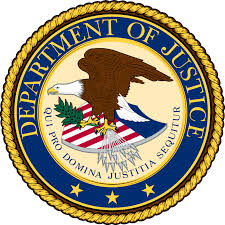DOJ Reasserts the Proper Role for Agency Guidance in Fraud Cases

The Justice Department has quietly rescinded a Trump administration policy that was needlessly undermining the role of government agency guidance. On July 1, 2021, Attorney General Merrick Garland issued a memorandum revoking what is known as the Brand Memo. In her memo, Former Associate Attorney General Rachel Brand had set out a position that defense attorneys scrambled to use to argue for leniency or declination in government investigations and False Claims Act cases.
The Brand Memo and Its Problems
In short, Brand’s policy instructed DOJ attorneys not to base enforcement decisions on a failure to comply with agency guidance, unless it had gone through Notice and Comment rulemaking.
Although the memo purported to be internal DOJ policy and only a narrow pronouncement, defense attorneys lauded it. They brought it up in meetings with DOJ attorneys and court motions, highlighting whatever interpretive guidance (which they like to denigrate as “sub-regulatory”) was relevant to the case and arguing that the actions should not proceed. They used it to claim that their clients could be excused from even knowing fraud if the obligations they were failing to meet were explained in agency guidance—regardless of whether they rested on a bedrock of statutory and regulatory requirements.
This slippery slope was the critical issue with the Brand Memo. It acknowledged, as it must, that often agency guidance explains the obligations set out in statutes and regulations. But it provided ammunition for those wanting to escape liability for deliberately turning a blind eye to what those obligations mean in specific circumstances. In the complex regulatory environments in which government contractors operate, they need to know how agencies interpret those statutory and regulatory mandates.
Think of the scope of a program like Medicare. It would be impossible to administer purely through the burdensome Notice and Comment process. Binding requirements give rise to countless questions about how they apply in particular scenarios, which the agency needs to be free to answer, and the industry does not want to wait two years for the answer to go through the formal rulemaking process. The ironic result is that, while defense counsel argues that these interpretive documents are meaningless and non-binding, their clients (when not defending themselves from fraud allegations) are the ones asking the questions and scouring agency guidance for information about how to follow the rules.
Garland’s Revocation and What’s Next
Thankfully, few defendants succeeded in dodging liability with these arguments, but it is welcome news that the Attorney General has backed away from them. Garland’s Memo acknowledges that “guidance documents do not bind the public” but explains that they “still serve many valuable functions:”
For example, interpretive guidance can “‘advise the public’ of how the agency understands and is likely to apply, its binding statutes and legislative rules.” Kisor v. Wilkie, 139 S. Ct. 2400, 2420 (2019) (plurality opinion) (quoting Perez, 575 U.S. at 97). Guidance may also help explain an agency’s programs and policies or communicate other important information to regulated entities and the public. Guidance can collect related statutes, regulations, and other requirements in a single place. And guidance materials often convey important information to the public in language that is clearer and more accessible than the underlying statutes and regulations. Guidance documents can thus serve as an important tool to promote transparency, fairness, and efficiency.
Because they ignored all these important roles of guidance, the Attorney General said, the prohibitions within the Brand Memo “hampered Department attorneys when litigating cases where there is relevant agency guidance.”
In rescinding the Brand Memo, the Attorney General made an important point. Agency guidance standing alone does not “form the basis for an enforcement action.” Such actions are based on the failure to comply with a binding obligation imposed by contract, statute, or regulation. But guidance documents may explain legal requirements (and even be accorded deference) in a way that is highly relevant to an enforcement determination. They may also be explicitly incorporated into contracts, or compliance with them may be required by statute or regulation.
With the Garland Memo, DOJ is rightfully keeping agency guidance in the picture.
READ MORE:
- False Claims Act
- Government Procurement Fraud
- Healthcare & Pharmaceutical Fraud
- I Think I Have a Whistleblower Case
- Contact Us Confidentially
Tagged in: Contract Non-Compliance, FCA Federal, Government Procurement Fraud, Healthcare Fraud, Medicaid, Medicare,